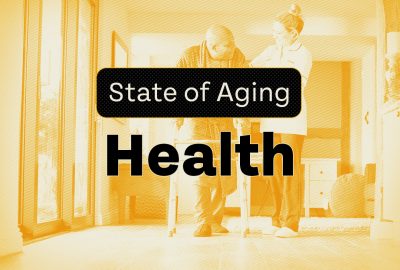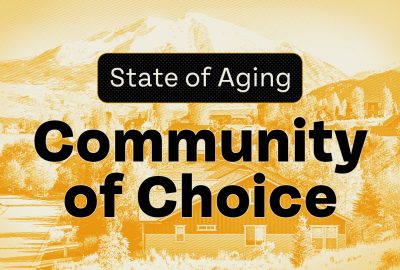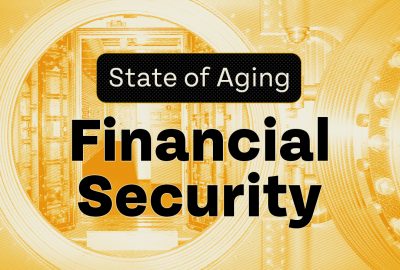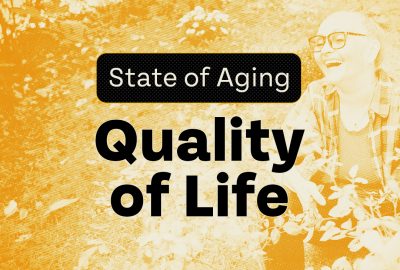The State of Aging in Colorado
Quality, replicable data is essential to understanding long-term progress, needs, and opportunities. While there has been a move to collect this type of information in many spheres, it’s largely been absent in relation to our aging community. As one of the fastest aging states in the country, this poses a significant problem for Colorado and has been a roadblock to ensuring quality outcomes for older Coloradans.
To fill this sizeable hole, the Bell Policy Center developed an inaugural State of Aging report to assess not only how older Coloradans are currently doing, but to provide information on both the systems supportive of these outcomes and indicators of future success. While capturing important information about the present state of aging, this report’s long-term value rests in its creation of a benchmark against which to measure future progress and change.
We began this project with the goal of creating a holistic picture of aging in Colorado. To that end, we worked with a variety of community partners to identify the following four focus areas necessary for healthy aging. Within each, we identified current outcomes, underlying challenges and opportunities, and systems capable of fostering positive change.
- Financial security: Referring to the ability of older Coloradans and their families to make ends meet, we examine typical income and expenditures of older adults within this focus area.
- Health: In this section we explore a range of health outcomes, but also the barriers and opportunities that exist in finding affordable and accessible care.
- Ability to live in the community of one’s choice: Most older adults want to remain in their homes and communities as they age. Within this issue area, we explore the prevalence of many supports — such as paid and unpaid care, transportation, and community-based services — necessary to make this preference a reality.
- Quality of life: Finally, recognizing many facets of healthy aging are intangible, but immensely valuable, this section examines outcomes and systems related to feelings of value, connection to others, and safety.
These four focus areas provide the building blocks for this report and contain the bulk of its analysis. However, importantly, as we conducted this work, five large trends, detailed in the accompanying PDF, emerged. Collectively, they portray a high-level picture of aging in Colorado and show:
- A significant number of older Coloradans are economically vulnerable, and face challenges as the cost of living rises
- Tremendous racial disparities exist for older BIPOC Coloradans
- Systems meant to support aging Coloradans and their loved ones often vary significantly by geographic area
- Large data gaps make it difficult to holistically assess the well-being of older Coloradans
- Recently, Colorado has made progress in adopting important policies supportive of older adults. Monitoring and assessing the impact of these initiatives will be crucial over the coming years.
This report, done with support from NextFifty Initiative, and the analysis within it provide the platform our state needs to identify gaps, fill holes, and build the sustainable systems and structures capable of ensuring Coloradans have the resources they need to thrive in older age. By doing so, and building on these findings, we can make invaluable long-term progress beneficial to individuals of all ages for many decades to come. (Before you get started, please read this note on our methodology regarding some parts of our data analysis.)




The Bell Policy Center hosted a live webinar discussion reviewing findings from this report on Feb 03, 2022.
A recording of that event can be viewed here.
